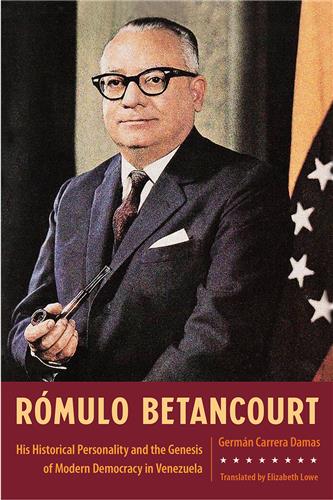Labor Politics in Latin America
Democracy and Worker Organization in the Neoliberal Era
Paul W. Posner, Viviana Patroni, and Jean François Mayer
Hardcover: $80.00
“An interesting and informative comparative study.”—Choice
“Deals in a systematic way with a very important topic, the world of work in Latin America and prospects for reform there. Scholars, citizens, and activists should pay heed.”—José A. Alemán, author of Labor Relations in New Democracies: East Asia, Latin America, and Europe
“Brings up to date our understanding of the nature of work and the fate of labor movements in five important Latin American countries. Provides well-researched, original case studies that move beyond current discussions of labor and democratization.”—Joel Stillerman, author of The Sociology of Consumption: A Global Approach
In recent decades, Latin American countries have sought to modernize their labor market institutions to remain competitive in the face of increasing globalization. This book evaluates the impact of such neoliberal reforms on labor movements and workers’ rights in the region through comparative analyses of labor politics in Chile, Mexico, Argentina, Brazil, and Venezuela.
Using these five key cases, the authors assess the capacity of workers and working-class organizations to advance their demands and bring about a more just distribution of economic gains in an era in which capital has reasserted its power on a global scale. In particular, their findings challenge the purported benefits of labor market flexibility—the freedom of employers to adjust their workforces as needed—which has been touted as a way to reduce income inequality and unemployment. In-depth case studies show how flexibilization as well as privatization, trade liberalization, and economic deregulation have undermined organized labor in all of these countries, leading to the current internal fragmentation of unions and their inability to promote counterreforms or increase collective bargaining.
This assessment concludes that even with substantial variation among countries in how reforms have been implemented, most workers in the region have experienced increasing precarity, informal employment, and weaker labor movements. This book provides vital insights into whether these movements have the potential to regain influence and represent working people’s interests effectively in the future.
Paul W. Posner, associate professor of political science at Clark University, is the author of State, Market, and Democracy in Chile: The Constraint of Popular Participation. Viviana Patroni, associate professor in the Department of Social Science at York University, is coeditor of Community Rights and Corporate Responsibility: Canadian Mining and Oil Companies in Latin America. Jean François Mayer, associate professor of political science at Concordia University, is coauthor of Understanding Human Rights: Origins, Currents, and Critiques.
- Sample Chapter(s):
- Excerpt
- Table of Contents
There are currently no reviews available












